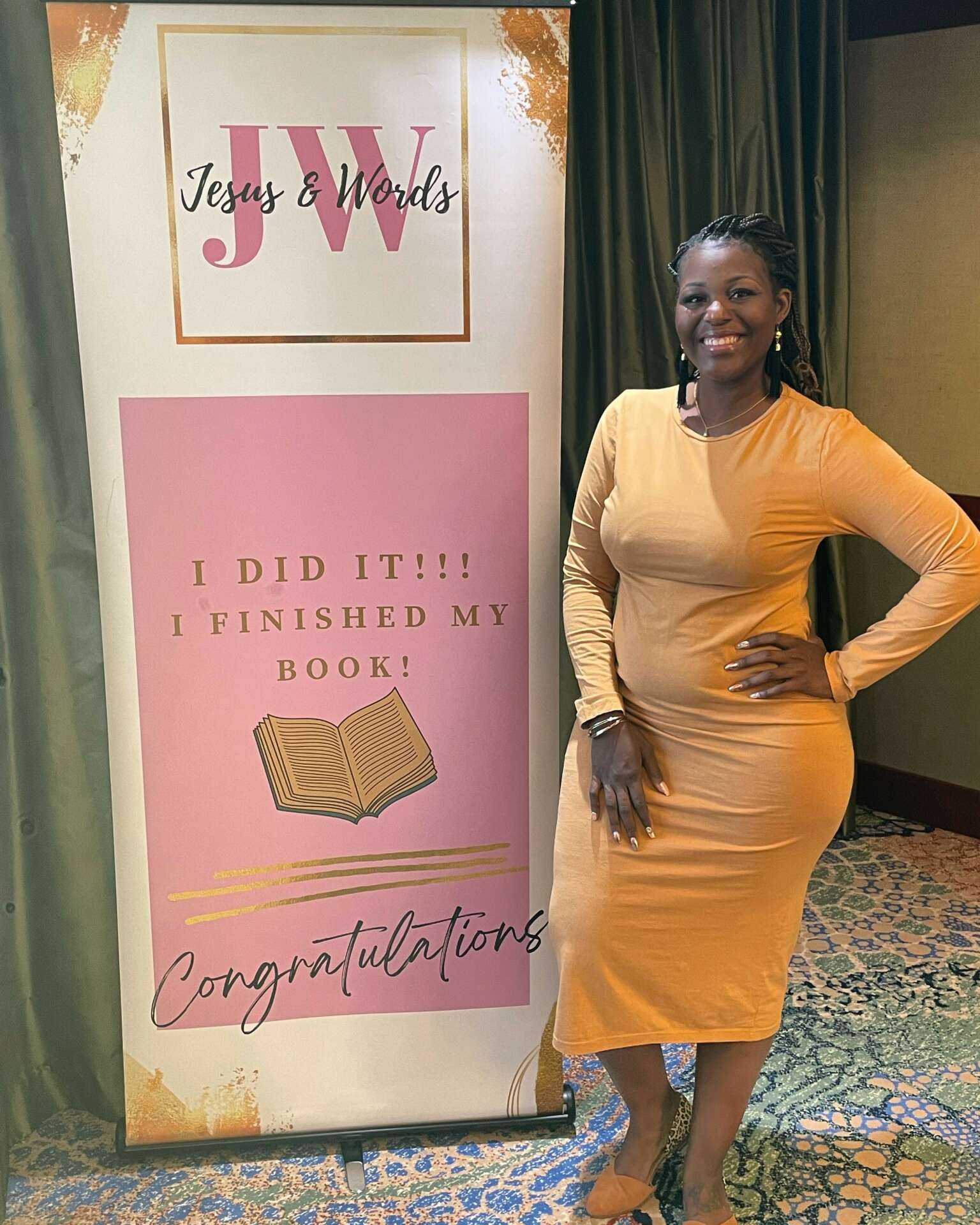We recently connected with Brittney Smith and have shared our conversation below.
Brittney, thanks for joining us, excited to have you contributing your stories and insights. Everyone has crazy stuff happen to them, but often small business owners and creatives, artists and others who are doing something off the beaten path are often hit with things (positive or negative) that are so out there, so unpredictable and unexpected. Can you share a crazy story from your journey?
I’m a ghostwriter, so naturally, I enjoy writing and writing for others. About a year ago, a client came to me telling me they were looking for someone to write their book because they didn’t have the time to devote to it. That’s very common, so there were no red flags there. I like to get my clients very involved in the process. In most cases, involvement looks like me asking a bunch of deep questions so that I have the greatest chance of making the first draft very close to what they were looking for in their book. After that, I go through it with them to make any changes they request. The key thing to remember is that I make all the changes because I am writing the book.
This particular client wanted to create their own program. We had our initial call, and I ended the call thinking I had all the information I needed to write the first draft of their book. While I was writing, they requested access to their document so they could see what I was writing. I don’t normally do that, but I figured whatever would set them at ease. After all, having someone else write their book was a last resort because they “supposedly” didn’t have the time. As I was writing, the system started telling me that changes were being made. I know I didn’t make these changes, so I was a little bit confused. When I reviewed the changes, it showed that the client was rewriting what I was writing. They were adding and deleting paragraphs. So much so that their new story wasn’t lining up with the story I was writing.
Clients are always allowed to change their minds about the type of book they want to write, however, communication is required if I am writing the book. I called a meeting with the client to ask what was going on. They told me that they liked what I was writing but wanted to make changes on their own. I told them that was not the program I was offering. I also told them that I thought it would be better if they wrote their own book and then sent it to me to edit since I’m also an editor. Since they had time to make changes, it appeared they had time to write. This particular client was insistent on not doing that. They really wanted me to write it.
Against my better judgment, I agreed to continue writing, and they agreed not to make any more changes. They also said they wouldn’t read it until I was done, and then we could discuss the changes. Long story short, I finished the first draft and sent it to them to review. The next step would be having a call with them to discuss the changes they wanted me to make. Instead, this client sent the book back to me and told me they were ready to move into the editing phase. As I was reviewing the book, I noticed that it was completely different from the one I had written. Honestly, I was pissed. This was exactly the opposite of what the client and I had discussed. Instead of acknowledging the red flag, I told the client that I knew they had changed the book, but we would move forward with the editing process.
While we were waiting for the book to be edited, my team began working on the book cover. The client sent us a very detailed description of what they wanted the cover to look like with examples. Perfect, right? No, because when we sent to the design back, the client said they wanted something totally different. They requested an entirely different cover that was nowhere near what they originally requested. Not to toot my own horn, but the people I work with produce spectacular book covers. Anyway, I’m all about customer satisfaction, and I sent the changes over. The changes were so different that the designer decided to opt out of the project. Apparently, they didn’t need more than one red flag to remove themselves.
After that, I realized that this particular client was someone who wanted to tell everyone what they wanted, watch them work hard to produce it, and then change their mind to something not even remotely close to their original request. That doesn’t work well in the book industry because people’s time and effort get wasted. Long story short, again, I told this client that I was ending our working relationship because they violated our contract and was becoming a difficult client to work with. I sent them an invoice for significantly lower than the balance they owed since we didn’t finish their book. Of course, they didn’t want to pay me, so I had to get my attorney involved. Per my contracts, I own the rights to every book I write until I am paid in full. When I pointed that out, they were quick to pay me.
This whole process made me upset for days. I work hard at what I do, and I felt like this was the type of client that was difficult to please and was trying to get over on me. However, I also felt guilty because I wasn’t able (read as refused) to finish the project. But the guilt wasn’t enough to make me work with a wishy-washy client. It’s not enough money in the world.


Brittney, love having you share your insights with us. Before we ask you more questions, maybe you can take a moment to introduce yourself to our readers who might have missed our earlier conversations?
I have an English degree, and I have always had a love for words. When I graduated college, I wanted to be a college professor, but that took a little more schooling and life led me down a completely different path. Shortly after grad school, I started looking for a new job but decided to write a book as a hobby. After I wrote my first book, people started telling me they wanted to write a book and asking me how I did it. I told them everything I knew because I didn’t really understand that people really didn’t know what to do.
I spent a few years teaching English and Writing to middle and high schoolers, but I helped people write books on the side. When Covid hit, I decided to pursue my passion for helping leaders and experts become authors full-time. It’s honestly been one of the best decisions I’ve made. Most people think writing a book is a difficult process, especially if they don’t consider themselves good writers. I help my clients create realistic schedules and plans that make writing their book a reachable goal as opposed to something that’s difficult and might take forever. For those clients who have no interest in doing the actual writing, I’ll write the book for them.
I’m really proud of the work that I do. Some people have been dreaming about writing a book for years but had no idea how to start and what to do once they have written it. I help make their dreams a reality by guiding them through the entire process. Coaches sometimes get a bad rep because people have had poor experiences with them. I do everything in my power to stay by my client’s side during their book project because I want them to feel supported. When I wrote my first book, I was all over the place and didn’t know what I was doing. I’m grateful for the mistakes I made and the lessons I learned because now I know how to help my clients avoid them.



Let’s talk about resilience next – do you have a story you can share with us?
Being a business owner, especially a new business owner, may have its ups and downs when it comes to money coming in. During the first six months of my business, I had two clients. At one point, I felt like I had more money going out than I had to come in because I was working with a business coach. Can you imagine paying someone to show you how to make money and then not making any? However, working with my coach showed me where the holes were in my marketing strategy. She also helped me reset my mindset regarding my confidence in getting paying clients and keeping them.
It was still hard because I was having conversations with people who wanted to write books, but no one was joining my program. It would have been easier to tell myself that entrepreneurship wasn’t for me and I needed to get a 9-5 job. Instead, I eventually got to the point where I told myself I was made for what I was doing, and if I just kept going, then the clients would come.
The clients came, and before I knew it, people were paying me thousands of dollars to help them write their books. Of course, it’s not all about money, but money definitely funds my Target trips. Without it, I can’t go to Target and let it tell me what to buy. All the no’s eventually led to a yes. At the end of the day, it only takes one yes to turn the tide. I’m glad I stuck with it.
Any advice for growing your clientele? What’s been most effective for you?
One of my best strategies for growing my clientele is listening to what they are saying. When I say listen, I mean actively listening by taking notes and asking clarifying questions to make sure you understand exactly what they are saying, Believe it or not, listening to a client’s needs is underrated because a lot of people want to sell sell sell without considering if the person they are selling to actually needs what they are offering. The other benefit of listening is that I also get to determine if I want to work with the person I’m talking to.
Not only do I get clients, but I get the right kinds of clients. People want to feel heard, and they also want to feel understood. Actively listening to potential clients allow me to make them feel heard, and then they trust me. Trust is what seals the deal because we don’t work with people we don’t trust. My clients choose me because they know I can support them with the needs they come to me with and not the things I may think they need.
Contact Info:
- Website: www.millionairesbookcoach.com
- Instagram: @brittneythebookcoach @88thandoliver
- Facebook: www.facebook.com/dioroliver
- Other: TikTok : @brittneythebookcoach


